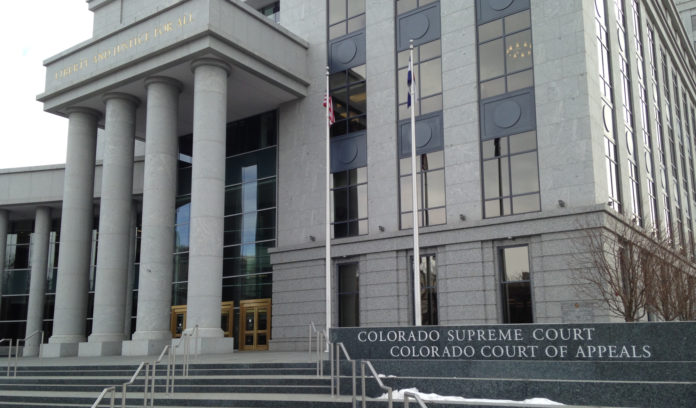
The Colorado Supreme Court has granted a petition for writ of certiorari in a water access case that could be precedent setting.
Since its inception, the case has been on a wild ride between federal and state court. The case centers around a fisherman wanting to have access to a stretch of the Arkansas River.
According to the petition filed by the state that was granted, which included Mark Warsewa and Linda Joseph as petitioners, when a state is admitted to the Union, the title to the bed of any navigable river passes to the state, while title to the beds of non-navigable rivers remained with the U.S. No river within the state was declared navigable at the time of statehood, so title to all riverbeds remained with the U.S. when Colorado became a state. The U.S. conveyed the title to non-navigable riverbeds to other owners through the use of federal patents.
According to a Colorado Court of Appeals unpublished opinion in the case, navigability encompasses rivers used or susceptible of being used as highways of commerce which trade and travel can be conducted using customary modes. Navigability is determined on a segment-by-segment basis.
According to the state petition, Roger Hill argued that the state, not Warsewa and Joseph owned some of the land under the Arkansas River as Hill claimed the river was navigable when Colorado became a state. Hill contended if that’s the case he could use it being a member of the public. He also sought a declaration Warsewa and Joseph don’t have a right to exclude him from wading in the Arkansas River at the subject location.
The state surmised the district court correctly found Hill lacked standing to bring either claim and Hill failed to state a claim for which relief can be granted. The Court of Appeals concluded Hill lacked standing to quiet the title in the name of the state, but found he had standing to seek declaratory judgment relying on the same theory.
The state argued that decision was wrong and if there isn’t a resolution from the Colorado Supreme Court, it “creates an unworkable process that threatens to upset long-settled arrangements governing water and river access.”
An opposition to petitions for writs of certiorari and cross-petition for certiorari filed on behalf of Hill, contended the river was navigable at statehood, arguing it was used and susceptible for use for commerce when Colorado became a state including by fur trappers and for log and railroad tie drives. In total, only the petition filed by the state was granted.
The Colorado Attorney General released a statement concerning the Colorado Supreme Court reviewing the case and the future of Colorado’s waterways.
“Recreation on Colorado’s rivers is vital to Colorado’s economy and our way of life,” said Colorado Attorney General Phil Weiser in a press release. “For decades, Colorado’s legislature and executive branches have adhered to the established and existing legal policy to govern river access and have declined opportunities to alter it.”
Weiser went on to say it’s his office’s duty to defend Colorado’s legal policy.
“As for any possible change to that policy, it is the province of the political branches, not the courts, to do so,” Weiser said. “Under Colorado’s current legal framework, property owners, water users, and leaders in the recreation industry have worked together to increase public access to rivers for recreation and to manage this important resource. Public calls to alter Colorado’s existing policy should be addressed by the political branches, not the courts.”
The question before the Colorado Supreme Court is whether an individual has standing to seek declaratory judgment that a river segment was navigable for title at statehood and belongs to the state.

